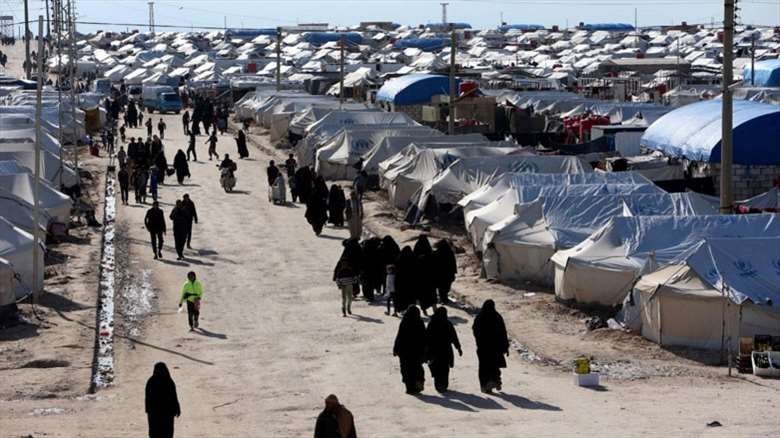Germany to work on more ISIS repatriations from Syria: German FM
German FM says Berlin to work on more ISIS repatriations from Syria

ERBIL (Kurdistan 24) – The German Foreign Minister Heiko Maas on Sunday announced that Germany will work on further repatriations after Germany and Finland last Saturday successfully repatriated several Islamic State-affiliated women and children from northeast Syria.
The repatriation process took several months of negotiations, with support from the Kurdistan Regional Government (KRG). The two European nations successfully returned 18 children and five women from North-East Syria.
“Germany and Finland, in cooperation and coordination with the [KRG] Ministry of Interior, and through the diplomatic envoys of the two countries in Iraq and Kurdistan Region, repatriated several women and children from ISIS families From German and Finnish origins to their homes, ”said the KRG’s Department of Foreign Affairs (DFR) in a statement.
The repatriated individuals were living in northeastern Syria’s al-Hol camp, the statement added. It also explained that three of the women and twelve of the children were of German origin, and the rest were Finnish.
“This good news and an encouraging sign that we will be able to make repatriations happen in other cases, too. We will continue to work on this in the coming weeks and months,” said German Foreign Minister Heiko Maas in a press release.
“The repatriation was based on humanitarian grounds and involved (amongst others) orphans and sick children – cases in which a repatriation was deemed particularly necessary and urgent,” he added.
He noted however that “yesterday’s repatriation was a huge undertaking which required months of intense preparation and arrangements. The already difficult situation in Northeastern Syria has turned even more precarious this year as a result of ongoing fighting and the COVID-19 pandemic.”
“People on the ground, including those who were in charge of the operation locally are already faced with many tough challenges on a day-to-day basis. We are all the more grateful to them and their efforts to make this operation happen - and to our Finnish partners, with whom we carried out this operation.”
Earlier this year, the Autonomous Administration of North and East Syria (AANES) have said they would prepare trials this year for foreign members of the so-called Islamic State who are in northeast Syria because European countries have refused to repatriate their nationals. The Kurdish-led administration has also asked for the creation of an international court in northeast Syria to try suspected Islamic State members.
The AANES and officials from the Syrian Democratic Council (SDC) visited Europe in February but gained limited support for such plans. Nevertheless, in recent years, more European nations have started repatriating Islamic State-affiliated children and women to their countries.
Editing by Khrush Najari